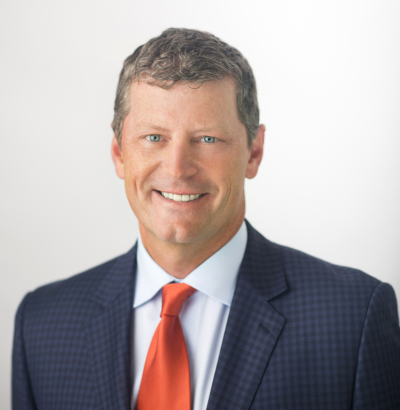Dr. Tim Simplot is a highly experienced otolaryngologist with knowledge of all things head and neck. Yet even as an expert in the field, he didn’t want to acknowledge his hearing loss right away.
“It’s one of those things where you know it. But no one likes to accept it. No one likes to admit it, probably,” Dr. Simplot said. “Ten years ago, I finally diagnosed myself, and—no shock—I have fairly significant hearing loss.”
One out of every eight Americans ages 12 and older has hearing loss in both ears. It’s more common in men than in women, often due to lifestyle and job type.
The likely causes of his hearing loss
Dr. Simplot said he suspects his hearing loss came on earlier than that of the average male due to noise exposure and genetics. “I grew up on a farm in the state of Iowa. I was young, foolish, had no hearing protection, and—the amount of machinery I was around—it was a loud environment,” he said. “Not everyone has to be exposed in a farm or work environment. You can have genetic issues, too. For example, my father also suffered from hearing loss.”
Dr. Simplot said he first noticed a shift in his hearing when sound in busy restaurants or during sporting events would make it difficult to hear conversations, even at close range. It became increasingly hard for him to interact with others when distracting sounds were present. How he watched TV also changed.
“I have to turn the TV up to get the punchlines and the jokes, and you know—my spouse and my family—they know it and they don’t like it,” Dr. Simplot said. “I don’t blame them. I’ve gone to closed captioning a lot.”
Time for hearing aids
A few years after taking his initial hearing test, Dr. Simplot decided it was time for a little help. He worked with Iowa ENT Center’s longtime hearing aid specialist, Curtis Pargeon, to get the correct type of hearing aids and make sure they fit properly.
Dr. Simplot emphasized the importance of getting the right device—and the proper fit—to get the biggest benefit from hearing aids. “I can’t wear your shoes, and you couldn’t wear my shoes properly,” Dr. Simplot said. “You need to work with your person, whether it’s the audiologist or hearing aid specialist, to really make sure you’re maximized with proper fit and customization.”
The technology for hearing aids has improved dramatically in recent years, with digital features to enhance processing, reduce feedback and noise, and improve the clarity of speech. Most of today’s hearing aids include Bluetooth capabilities that connect to an app on your phone—allowing you to easily adjust settings on-the-go, make phone calls, listen to music, and more.
“Get back to hearing your loved ones and living life”
Dr. Simplot said it’s usually obvious when you start to lose hearing function but that people often drag their feet on getting help. Without proper solutions, people can feel disconnected from the world around them. This can even lead to an increased risk of dementia, according to a 2023 Johns Hopkins study.
“If people are complaining you’re not hearing them, you’re probably not hearing them,” he said. “It can take a few years before people finally get tested. But the sooner you accept hearing the loss, the sooner you can find the best solution and get back to hearing your loved ones and living life.”
Iowa ENT Center can help
Ready to check on your hearing? Iowa ENT Center offers the full spectrum of hearing care, including hearing loss assessments and hearing aid fitting, sales, and service. Call 515-223-4368 or request an appointment online.
